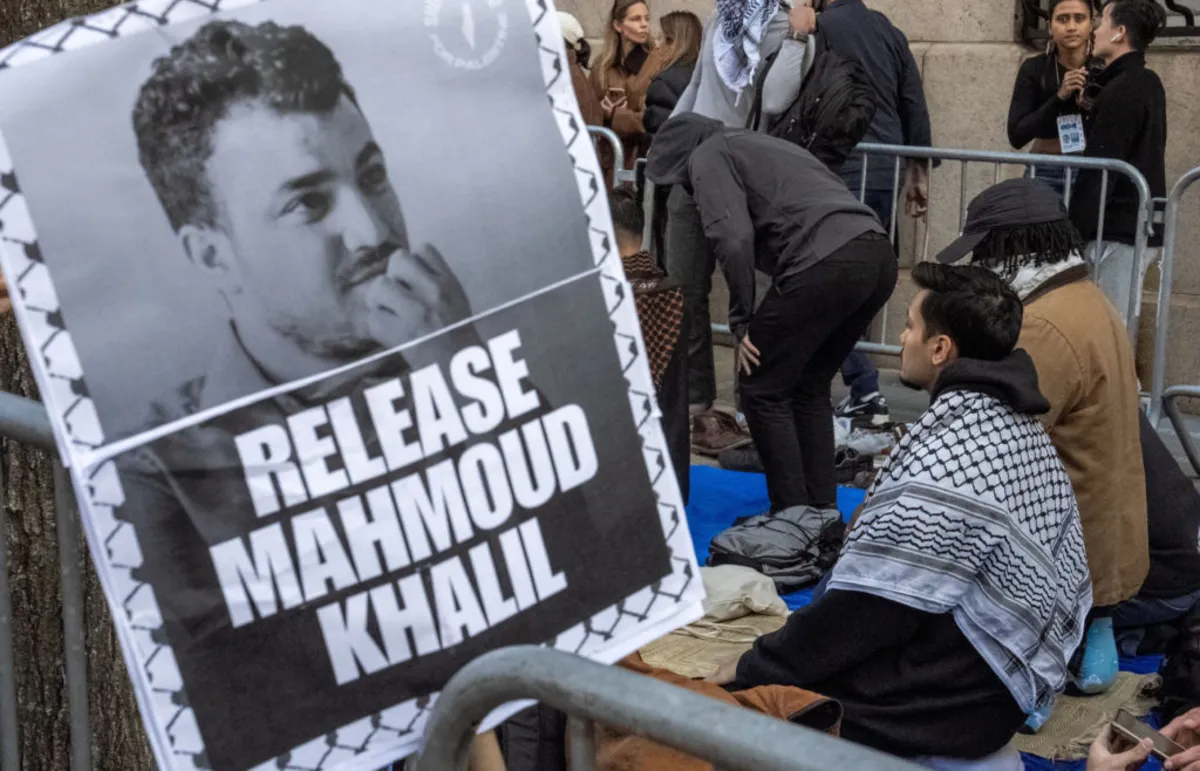
In a significant ruling on Friday, an immigration judge in Jena, Louisiana determined that Mahmoud Khalil, a graduate student from Columbia University, can be deported as a potential national security risk. The case centers around Khalil's involvement in pro-Palestinian demonstrations, raising questions about freedom of speech and national security in the current political climate.
During the hearing, Immigration Judge Jamee E. Comans asserted that the government's claim that Khalil's presence in the U.S. could lead to “potentially serious foreign policy consequences” was sufficient grounds for his deportation. Comans stated that the government had established a compelling case that Khalil is removable from the United States.
Khalil's legal team has announced plans to appeal the ruling, and a federal judge in New Jersey has temporarily prevented his removal while the legal battle unfolds. Khalil, who is a legal resident, was initially detained by federal immigration agents on March 8 after he was apprehended in the lobby of his university-owned apartment.
This incident marks the first arrest under former President Donald Trump's administration's crackdown on students participating in protests against the ongoing conflict in Gaza. Khalil was swiftly relocated to an immigration detention center, situated thousands of miles from both his attorneys and his wife, who is a U.S. citizen and is expecting their child soon.
Khalil's attorneys argue that his detention is a blatant attempt to stifle free speech, which is protected under the U.S. Constitution. The U.S. Secretary of State, Marco Rubio, has invoked a seldom-used statute to justify the deportation, claiming that Khalil could pose "potentially serious adverse foreign policy consequences" for the United States.
At the hearing, Khalil's attorney, Marc Van Der Hout, contended that the government's evidence fails to substantiate their claims regarding foreign policy implications. Judge Comans challenged the prosecution to present solid proof justifying Khalil's expulsion. She indicated that without adequate evidence, she would consider terminating the case.
In response, Justice Department attorneys filed documents in Newark, New Jersey, asserting that Judge Comans lacks the authority to release Khalil immediately. They clarified that an immigration judge must first determine his deportability before any bail hearing can occur.
Khalil has not been accused of any illegal activity during the protests at Columbia. However, the government maintains that noncitizens who participate in demonstrations deemed antisemitic or supportive of groups like Hamas should be expelled. This stance comes in light of the violent events surrounding the recent Israel-Gaza conflict, which escalated on October 7, 2023.
The 30-year-old international affairs student played a prominent role in advocating for student activism at Columbia, including a notable protest against Israel's military actions in Gaza. Although he was not involved in the occupation of an administration building that occurred during these protests, his public visibility and vocal stance have drawn criticism from those who view his actions as antisemitic.
The White House has accused Khalil of "siding with terrorists" but has not provided supporting evidence for this claim. Meanwhile, federal judges in both New York and New Jersey have issued orders to halt Khalil's deportation as his case progresses through the legal system.
The Trump administration has also threatened to withdraw at least $400 million in federal funding from Columbia University and its medical center, citing the institution's inadequate measures to combat what they define as antisemitism on campus. Some Jewish students and faculty have reported experiences of harassment or exclusion during the protests, highlighting the tensions surrounding this sensitive issue.
In summary, Khalil's case has become a focal point for discussions on immigration, free speech, and national security. As legal proceedings continue, the implications of this case may resonate beyond Khalil, affecting other activists and the landscape of campus protests in the United States.